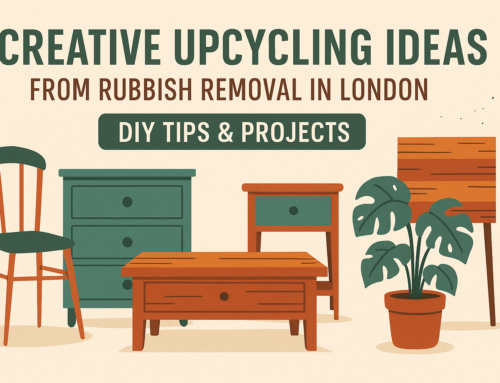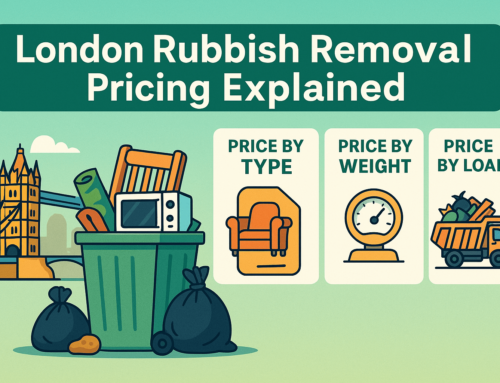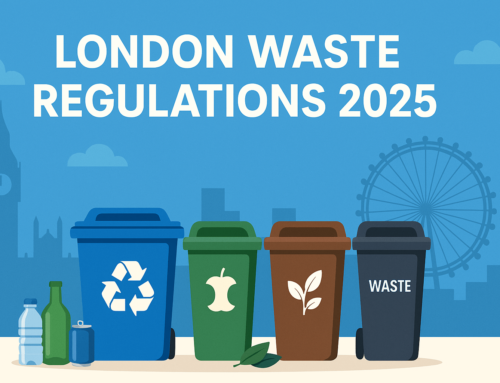As London tightens environmental regulations, commercial rubbish removal is undergoing a major transformation. Businesses are moving beyond basic compliance and embracing eco-friendly waste disposal as part of their sustainability strategies. Whether it’s handling garden waste, adopting zero-waste policies, or investing in onsite composting, companies across London are rethinking how they manage rubbish.
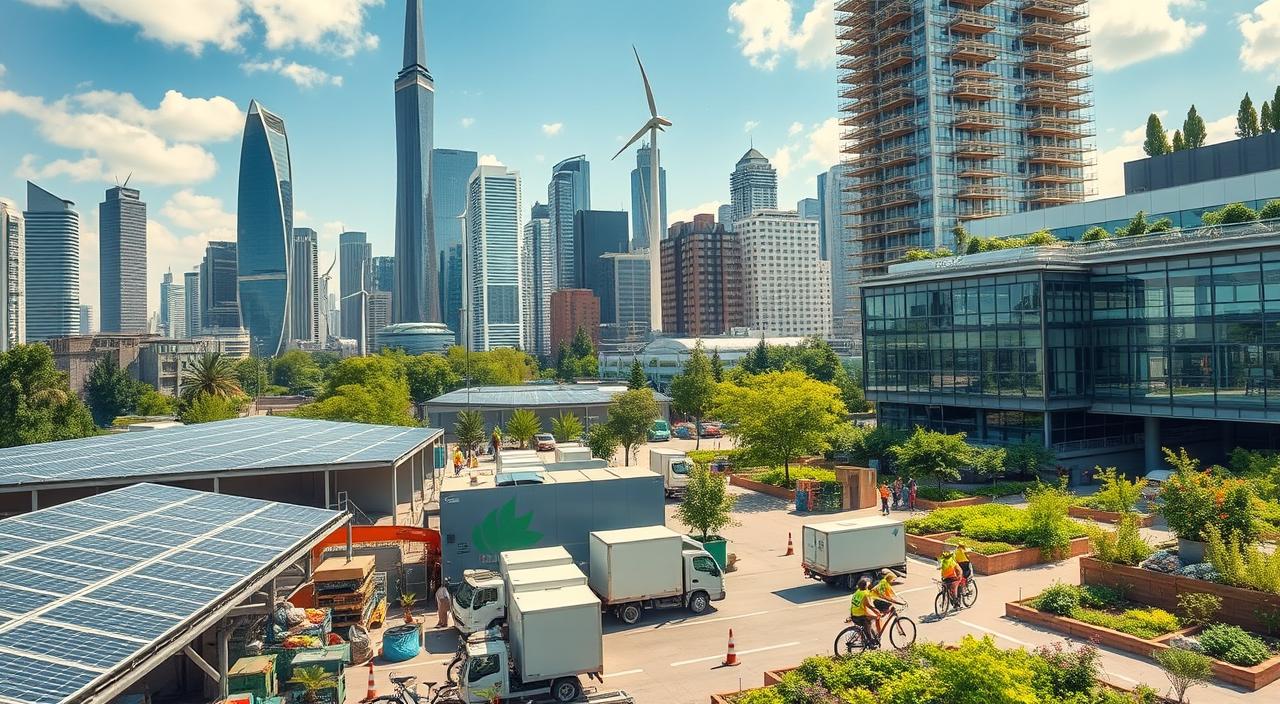
This guide explores how forward-thinking London businesses are tackling their rubbish challenges while aligning with the city’s sustainability goals.
🔑 Key Takeaways
- London businesses are shifting to sustainable rubbish removal practices.
- Commercial garden waste disposal is a growing priority.
- Proper waste segregation and composting can cut costs.
- Regulatory deadlines for recycling compliance are fast approaching.
- Case studies show innovative waste reduction is achievable.
The Changing Landscape of Commercial Waste Management
London’s dense commercial environment creates substantial waste. Traditionally, much of this ended up in landfills, but the cost — both financial and environmental — has become unsustainable.
With the UK’s Simpler Recycling Regulations coming into force (2025 for large businesses), many organisations are reviewing their waste processes to meet stricter standards.
Common Waste Challenges for London Businesses
- Waste Volume: Businesses generate a high quantity of mixed rubbish, particularly during seasonal or construction activities.
- Recycling Compliance: New rules demand better separation of materials like paper, glass, metal, and food waste.
- Garden Waste Disposal: Green spaces attached to offices or retail parks produce organic waste often mishandled.
- Cost Management: Inefficient systems increase collection costs and landfill fees.
A Shift Toward Sustainable Practices
The concept of “zero waste to landfill” is becoming a realistic goal for many companies. This involves reducing waste production, improving reuse, and maximising recycling.
Key sustainable strategies include:
- Replacing single-use materials with reusable ones
- Partnering with eco-conscious waste collectors
- Investing in staff training for correct segregation
- Onsite solutions like composters or shredders
Circular economy thinking is guiding these changes — where waste is viewed as a resource rather than something to discard.
Understanding Commercial Green Waste
Green waste is often overlooked in corporate waste strategies. It includes:
- Grass cuttings
- Branches and leaves
- Garden trimmings
- Soil and compostable landscaping materials
Instead of bagging and binning, businesses can compost or mulch these materials.
Table 1: Green Waste Types and Sustainable Disposal
| Waste Type | Disposal Method | Environmental Benefit |
|---|---|---|
| Grass Cuttings | Onsite composting | Enriches soil, reduces transport emissions |
| Tree Branches | Mulching/chipping | Reused for landscaping |
| Mixed Garden Waste | Green waste collections | Reduces landfill use |
| Leaf Litter | Composting or mulching | Improves soil structure |
Why Improper Disposal is Risky
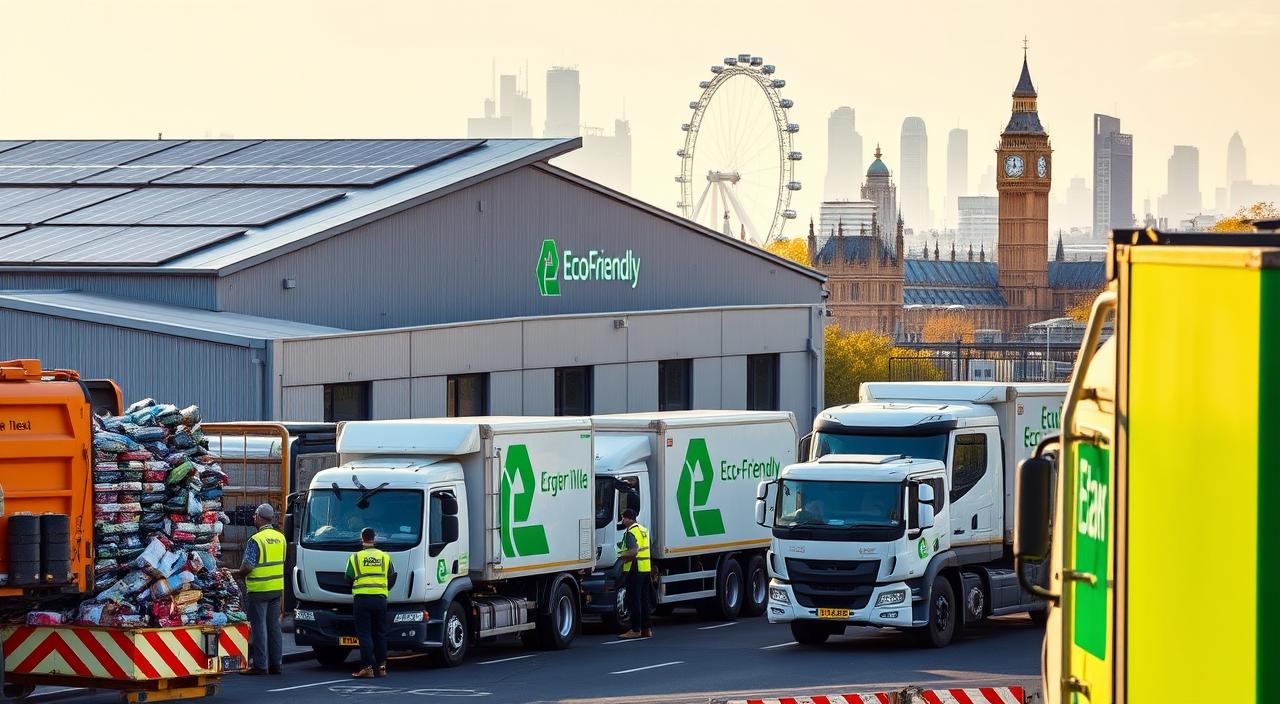
Sending organic waste to landfills creates methane, a potent greenhouse gas. Burning green waste pollutes the air and breaches environmental laws. Visually, poorly managed rubbish harms a business’s image and may attract penalties.
Sustainable disposal reduces carbon emissions, avoids legal issues, and supports London’s air quality goals.
Legal Duties: What London Businesses Must Know
1. Waste Duty of Care Under the Waste Duty of Care Code of Practice, businesses must:
- Store waste safely
- Transfer it to licensed carriers
- Keep waste transfer notes
2. Simpler Recycling Rules (Effective 2025/2027)
- Businesses with 10+ employees must comply by 31 March 2025
- Smaller firms by 31 March 2027
- Separation of recyclables is mandatory
Non-compliance can result in:
- Improvement notices
- Financial penalties
- Legal action
📝 Learn more from the official government page: UK Waste Duty of Care
Green Garden Waste Solutions for Businesses
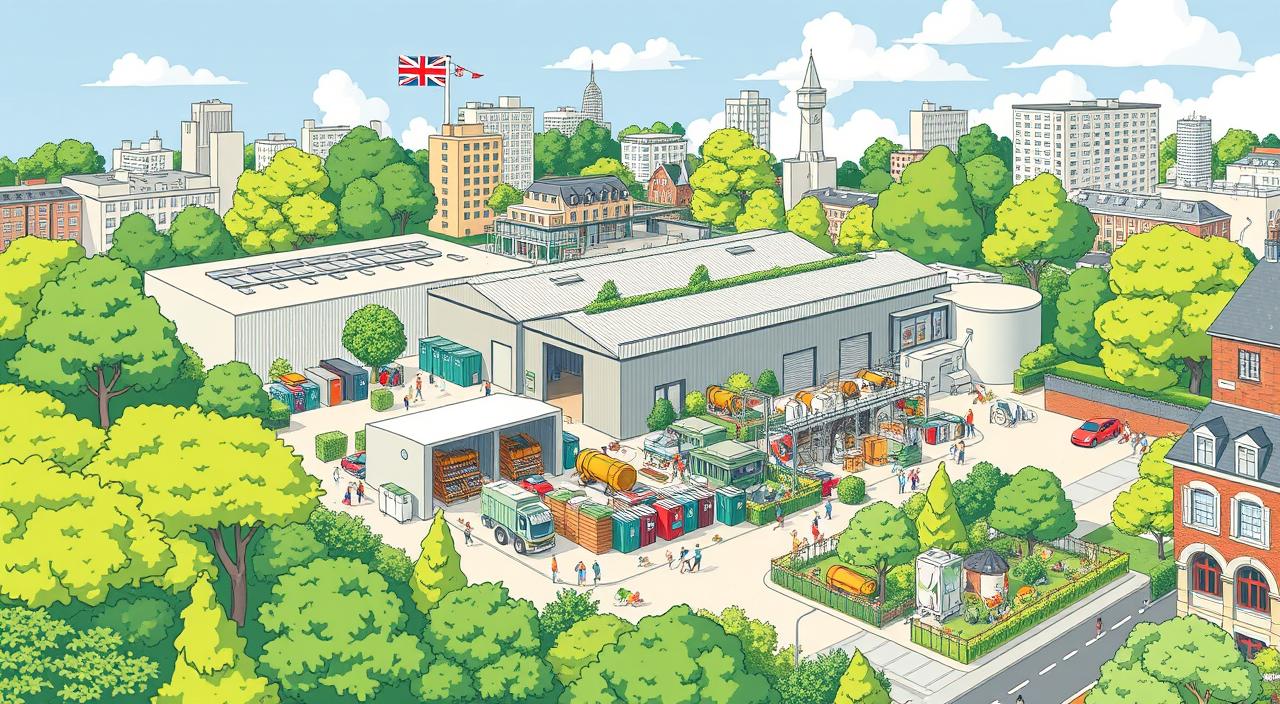
Garden Waste Bin Collections
Many waste contractors now offer commercial garden waste services. These bins handle:
- Hedge trimmings
- Flower waste
- Small branches
Collections can be weekly or fortnightly depending on your waste volume.
Trade Waste Disposal Options
Companies producing high volumes of green waste may benefit from trade waste schemes. These involve:
- Ticket-based access to recycling centres
- Weight-based charges encouraging less waste
- Larger bin sizes and more frequent collections
You’ll need:
- A valid waste carrier licence
- Proper transfer documentation
Innovative Disposal of Grass & Tree Waste
Grasscycling
This technique involves leaving cut grass on lawns to decompose naturally. It saves on:
- Collection fees
- Fertiliser costs
- Labour
Onsite Chipping & Biomass Use
Branches can be chipped into mulch or converted into biomass fuel, reducing both cost and landfill burden.
Table 2: Innovative Woody Waste Strategies
| Approach | Description | Benefit |
|---|---|---|
| Onsite Chipping | Turns branches into mulch | Reused on-site for landscaping |
| Biomass Energy Conversion | Turns wood into renewable fuel | Offsets energy bills, reduces emissions |
| Community Wood Recycling | Reuse of timber in local projects | Social value and landfill diversion |
Composting and Recycling Green Waste
Onsite Composting
For cafes, campuses, and offices with gardens, small-scale compost bins can:
- Reduce external waste collections
- Create nutrient-rich soil for use on-site
- Lower overall waste volume
Trade Access to Recycling Centres
Most London boroughs have centres that accept trade green waste. Examples include:
- Southwark Reuse and Recycling Centre
- Islington Waste and Recycling Centre More info
Cutting Waste Management Costs
Eco-friendly doesn’t mean expensive. With smart systems, businesses can reduce both waste and operational costs.
Case Study: A London business that invested £1,000 in composting and waste separation saw £3,000 in savings over the first year by reducing collection fees and purchasing less fertiliser.
Long-Term Financial Impact
| Strategy | Initial Cost | 1-Year Savings |
|---|---|---|
| Onsite Composting | £500 | £2,000 |
| Full Zero-Waste Program | £1,000 | £3,000 |
By avoiding landfill tax and gaining rebates for clean recyclables, the return on investment improves each year.
Case Studies: Sustainability in Action
1. Landscaping Firms
Many landscaping companies are composting directly on site and offering eco-friendly packages to clients. One such company reduced disposal by 50% in a single year.
2. Corporate Campuses
Large offices in Canary Wharf and King’s Cross have introduced:
- Dedicated green waste bins
- Training sessions for maintenance staff
- Seasonal tree pruning and on-site mulching
These efforts have drastically reduced waste volume and improved community engagement.
Conclusion: The Future of Business Waste in London
The future of commercial rubbish removal in London lies in smarter, greener solutions. Businesses that:
- Embrace zero-waste policies
- Understand legal duties
- Implement onsite and trade disposal options
- Partner with sustainable waste providers
…will not only meet compliance but also build a strong, eco-conscious reputation.
The shift is no longer optional. It’s a responsibility — and an opportunity.
